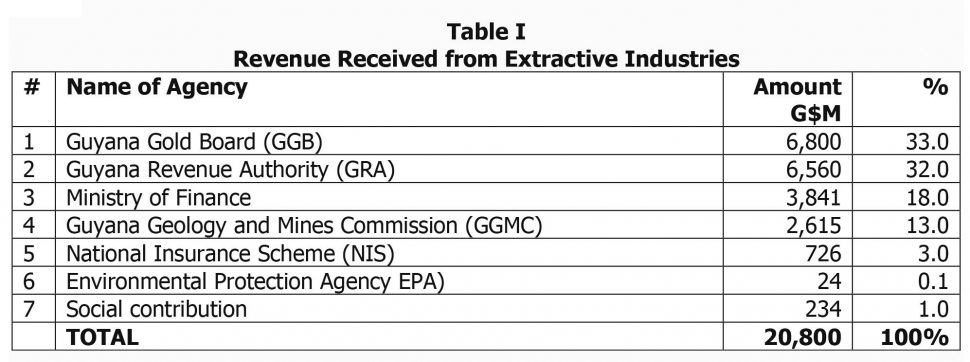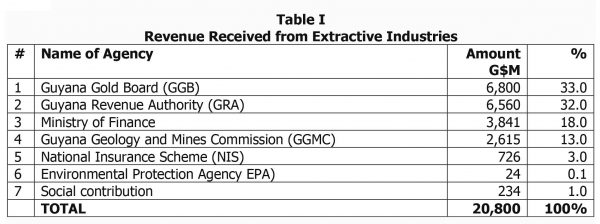 Increasingly, the media landscape is a very difficult terrain to navigate on its own, but it is even more dangerous when members of the media are attacked and muzzled in the execution of their duties. Many still soldier on regardless of the risk because they are committed and determined to uphold this important hallmark of democracy.
Increasingly, the media landscape is a very difficult terrain to navigate on its own, but it is even more dangerous when members of the media are attacked and muzzled in the execution of their duties. Many still soldier on regardless of the risk because they are committed and determined to uphold this important hallmark of democracy.
Canada will always defend journalistic freedom and stand against any violence, intimidation, censorship, lawsuits threatening permanent injunctions of dissemination of factual information and false arrests used to silence journalists. From international broadcasters that bring the world into our homes, to local newspapers that empower us to shape the communities we live in – we know that a free press helps build stronger and healthier societies
Canadian High Commissioner Lilian Chatterjee on World Press Freedom Day
Last week, the National Assembly paid tribute to a deceased Member of Parliament, Mr. Abdul Kadir, for his contribution as a legislator. Mr. Kadir died in a U.S. prison last year after having been convicted of plotting a terrorist attack at the John F. Kennedy International Airport. The U.S. Embassy here has issued a stern rebuke to the Guyanese authorities, stating that ‘[w]ith this resolution, honoring a convicted terrorist, members of Guyana’s National Assembly have left a stain on their legacy as representatives of the Guyanese people and on their commitment to the rule of law’. The U.S. position was supported by British High Commissioner who considered the Administration’s action inappropriate. The Canadian Government and the European Union Delega-tion in Guyana have also issued statements of concern. The Guyana Private Sector Commission joined in condemning the Administration’s action and called on the Government to revisit its position and take the necessary steps to correct ‘the terrible and unfortunate message the statement has sent to the international community’.
Notwithstanding the Government’s expression of regret over the interpretation of its action, it was indeed an error of bad judgment to pay tribute to and to honour a convicted international terrorist in the highest forum in the land that is responsible for passing laws to, among others, combat terrorist activities. The most significant of these was the passing of the 2009 AML-CFT Act and related amendments. One wonders about the position of the Alliance For Change (AFC) on the matter, considering its declared commitment to provide the necessary checks and balances on its senior coalition partner for any possible indiscretion on the latter’s part. Be that as it may, the Government has to be extremely careful not to alienate the A, B, C and E countries (the United States, Britain, Canada and the European Union) which have provided much-needed financial and other support over the years to our country. One sincerely hopes that the concerns expressed by these countries are not interpreted as attempts to interfere with the internal affairs of the country.
Now for today’s article. The Head of the National Secretariat of the Guyana Extractive Industries Transparency Initiative (GY-EITI), Dr. Rudy Jadoopat, has announced the publication of the 2017 Guyana EITI report prepared by the Independent Administrator, BDO LLP. This is the first report since GY-EITI was established in late 2016.
Background on EITI
The EITI was first launched in 2002 at the World Summit on Sustainable Development in Johannesburg, South Africa. This was followed by a conference in London in 2003 at which several countries, companies and civil society organisations agreed to a 12-point Statement of Principles to increase transparency over payments and revenues in the extractive sector, as discussed in our article of 28 August 2017. The EITI Association was established under Norwegian law and currently comprises 53 member countries. With an International Secretariat, and a 21-member board drawn from governments, industry and civil society, the EITI seeks to strengthen government and company systems, inform public debate and promote understanding in relation to the extractive industry. In each of the implementing countries, the EITI is supported by a coalition of government, companies, and civil society. It shares the belief that natural resource wealth should benefit citizens and that this requires high standards of transparency and accountability.
In its 2016 Progress Report, the EITI emphasised the following:
A country’s natural resources, such as oil, gas, metals and minerals, belong to its citizens. Extraction of these resources can lead to economic growth and social development. However, poor natural resource governance has often led to corruption and conflict. More openness and public scrutiny of how wealth from a country’s extractive sector is used and managed is necessary to ensure that natural resources benefit all.
The EITI has promulgated standards to which participating countries are required to observe. A key requirement is for countries to publish timely and accurate information on key aspects of their natural resource management, including how licences are allocated, how much tax and social contributions companies are paying and where this money ends up in the government. Through the EITI, companies, governments, and citizens increasingly know who is operating in the sector and under what terms, how much revenue is being generated, where it ends up and who it benefits. From the perspective of the State, the EITI helps to improve the investment climate by providing a clear signal to investors and international financial institutions that there is commitment to greater transparency. It also assists in improving governance and promoting greater economic and political stability.
The Guyana EITI
In Guyana, there was no mechanism in place to provide open and accountable management of natural resources, especially as regards public reporting of revenue derived from extractive industries. In May 2010, the Government announced its commitment to implement the EITI programme while in 2011 the then Ministry of Natural Resources & the Environment held discussions with the Government of Norway. A workshop was also held with key stakeholders. In May 2012, the Ministry and the EITI signed a Memorandum of Understanding to assist Guyana in preparing for its EITI candidacy. A scoping study was commissioned in 2015 and a draft report (Moore Stephens Report) was issued in October 2015.
In 2016, the Government of Guyana reaffirmed its commitment to becoming a member of the EITI with the issuance of an unequivocal public statement which is the first in a series of five steps before a formal application is made. Guyana has since taken the following actions, consistent with the EITI Standard:
(a) Established the EITI National Secretariat (GYEITI) in December 2016;
(b) Appointed a National Coordinator in February 2017;
(c) Launched the Multi-Stakeholder Group (MSG) in February 2017, comprising
representatives of Government, industry and civil society;
(d) Consulted with key stakeholders and conducted public outreaches in July
2017; and
(e) Submitted a formal application for membership of the EITI in August 2017.
In October 2017, Guyana was accepted to the membership of EITI.
EITI Annual Report
One of the requirements of the EITI Standard is the publication of an annual report within eighteen months of a country’s membership of EITI. The report is to be prepared by an Independent Administrator who must: (i) be perceived to be credible, trustworthy and technically competent; (ii) possess expertise and experience in the oil, gas and mining sectors as wells as in accounting, auditing and financial analysis; and (iii) have a track record in similar work. The terms of reference of the Administrator are as follows:
(a) To agree with the MSG the scope of the study which should be consistent
with the EITI Standard;
(b) To conduct a preliminary analysis and prepare an Inception Report;
(c) To collect data, carry out reconciliation and investigate discrepancies;
(d) To prepare a draft report for consideration by the MSG;
(e) To issue a Final Report to the MSG after taking into account the comments of
the MSG.
The MSG is required to publish the final report.
Summary of Findings
The following are the key findings of the report:
Revenue Received: Total revenue received by Government agencies from extractive industries amounted to G$20.8 billion as shown at Table I.
Taken together, the extractive industries contributed 20.9 percent of GDP and 65.1 percent of export earnings. In terms of revenue by sector, gold and other minerals accounted for 84 percent while oil and gas, and bauxite accounted for 14 percent and two percent, respectively. A total of 11,026 persons were employed in the mining sector while there were 51 employees in the oil and gas sector.
The report, however, highlighted the following:
(i) The Ministry of Finance did not submit signed reporting templates for 31 extractive industries for which the Government did not receive any revenue;
(ii) Due to legal confidentiality constraints, GRA was not able to submit reporting templates for 23 extractive entities. GRA’s total receipts from these 23 entities could not be estimated because 17 extractive entities did not submit reporting templates;
(ii) GRA submitted ten reporting templates that were not signed by the authorising officer. The total amount involved was G$2.703 billion representing 20 percent of the reconciled revenue;
(iii) All Government Agencies did not submit confirmation from the Auditor General or from their independent auditors that their reporting templates had been prepared as per their respective audited accounts; and
(iv) GGMC, EPA and NIS did not submit their respective audited financial statements. Together, they account for 16.1 percent of revenues received from the extractive industry;
(v) Six extractive entities submitted reporting templates without their audited financial statements or a confirmation of the external auditors that these have been prepared based on audited financial statements. The revenues reported by Government Agencies in respect of extractive entities which submitted reporting templates not certified by their external auditors amounted to G$4.326 billion representing 31% of the total reconciled revenues.
The report concluded that:
Given the lack of reporting templates from both extractive entities and GRA, the total extractive revenues collected from these seventeen (17) entities could not be determined … On this basis, we were unable to conclude that this report covers all significant contributions made in the 2017 fiscal year by extractive entity to the revenues of Guyana.







